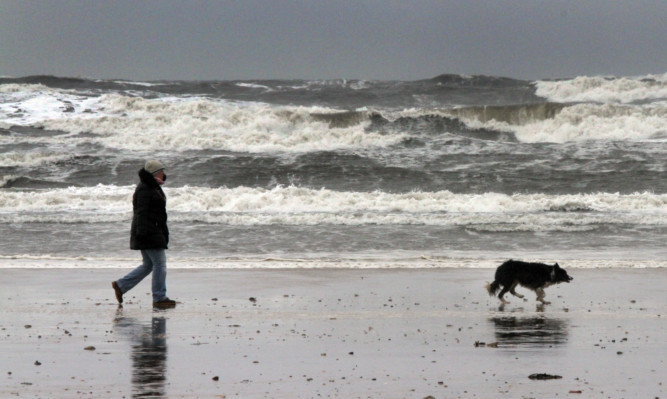Action must be taken to protect polluted Scottish beaches from closure, according to the Marine Conservation Society (MCS).
The call comes as the number of the country’s beaches recommended for excellent water quality in the MCS Good Beach Guide has fallen once again and is now well below the UK average.
The organisation has recommended only 42 of the 109 Scottish bathing beaches tested in 2012 as having excellent water quality.
MCS Scotland programme manager Calum Duncan said the results show the charity’s call for improved monitoring of combined sewer overflows and action to reduce pollution from farms and populated areas are even more urgently needed.
“Action must be taken now,” he said.
“With stricter bathing water standards from 2015 and summers that appear to be getting wetter, the iconic image of people bathing off golden beaches could be at serious risk.
Four beaches failed to meet even a minimum European Standard, or equivalent, for bathing water quality.
They included Lower Largo and Stonehaven which both failed to achieve the minimum standard for protecting bathers’ health from bacterial pollution.
Of the 25 beaches tested in Courier Country only seven received the aspiration standard ‘recommended.’ They were at Kinghorn, Elie (Ruby Bay), Crail, Tentsmuir Sands, Arbroath (West Links), Arbroath (Victoria Park) and Lunan Bay.
Burntisland and Elie (Harbour) and Earlsferry received ‘Guideline’ gradings a higher standard for beaches with better water quality while all the other beaches in Fife and Tayside achieved the mandatory requirements to protect bathers from ill health.
However, MCS recognised that many of Scotland’s more remote beaches are not tested for water quality, due to the low number of bathers, and so their water quality is not accounted for.
Every region of the UK has had fewer beaches recommended in the latest edition of the guide due to the exceptionally wet summer in 2012.
Relentless rain and flooding in many parts led to an increase in the amount of bacteria and viruses ending up in Scotland’s bathing waters.
This type of pollution can originate from a variety of sources such as agricultural and urban run-off, storm waters, misconnected plumbing, septic tanks and dog faeces.
Sewage and animal waste is full of viruses and bacteria and most water users will not be aware that this type of pollution can increase the chance of them going home with an ear, nose or throat infection or even gastroenteritis.
Mr Duncan added: “These figures must be a wake up call to the Scottish Government, to Scottish Water and to local authorities who must all play a part in finding a solution. If we don’t all work together now, the impacts could be a major blow to Scotland’s tourist economy if, after 2015, some beaches could be closed to bathers if they repeatedly fail basic standards.”
